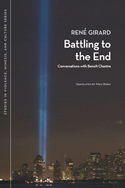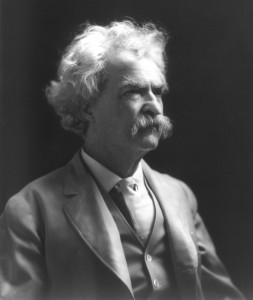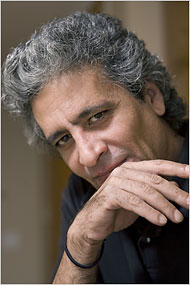The Tintin craze
Thursday, December 31st, 2009
I never had much interest in comics, so the current craze for Tintin and its creator, the Belgian artist Hergé, passed me by — until I read a few intriguing reviews offered on the 80th anniversary of Tintin’s debut.
The fêtes, touting the adventure boy whose stories foreshadowed the the advent of the “graphic novel” in the West, have found several reasons for celebration: Tintin devotee Steven Spielberg is directing The Adventures of Tintin: The Secret of the Unicorn, which is scheduled for a 2011 release; it is the first of a projected series. The second volume of The Art of Hergé, a planned three-volume anthology from Last Gasp press, will be out in March.
Also, two newly published books have brought Tintin into the MSM: Pierre Assouline’s Hergé: The Man Who Created Tintin, published by Oxford University Press, and, at Stanford University Press, Jean-Marie Apostolidès‘ The Metamorphoses of Tintin.
Both books document the troubling story of the author who, according to Charles McGrath, writing in a New York Times review, was “far happier and more interesting in his work than he ever was  in life.” Hergé worked for a collaborationist newspaper in Belgium during the war, and his cartoons participated in the antisemitism and racism of the era.
in life.” Hergé worked for a collaborationist newspaper in Belgium during the war, and his cartoons participated in the antisemitism and racism of the era.
Apostolidès recounts a critic fulminating, “This hypocrite, this boy feigning innocence, this ugly little monkey cannot fool us any longer. It’s time we exposed him for what he really is. Tintin is a forty-year-old dwarf, a colonialist, and a zoophile, with homosexual tendencies to boot. This is the despicable character we set up as a hero for our dear little children.”
Benjamin Ivry, in the San Francisco Chronicle, writes:
Hergé, who was much criticized by his compatriots after the Nazi defeat, revised most of the offensive portions in later editions of his books, but possibly never truly understood his own offenses. In 1945, when a friend who had been a slave laborer in Germany returned to Belgium and described Jewish concentration camp prisoners he had seen, Hergé replied: “You mistook what you saw. … And first of all, how do you know they were Jews? They were surely common law criminals.”
In the end, Hergé concluded: “Tintin has been for me the means to express myself, to project my desire for adventure and violence, the bravery and resourcefulness within me,” — McGrath added, “and yet in the end the character seems less a projection of Hergé’s inner self than the repression of it. What makes Tintin so appealing is that he never grows up and has no inner life at all.”
 The Adventures of Tintin was translated into 60 languages, and has sold more than 200 million copies to date — a figure that’s likely to balloon after the current round of publicity.
The Adventures of Tintin was translated into 60 languages, and has sold more than 200 million copies to date — a figure that’s likely to balloon after the current round of publicity.
Not bad for the boy with no back-story. “Tintin is a character without a past,” Apostolidès writes in the introduction to his book. “We don’t even know why he insists on having his hair cut like a blue jay’s,” notes Bruce Handy in the New York Times Sunday Book Review.
Handy continues: “I think Hergé’s greatest achievements are formal: his precise yet witty line, like mechanical drawing with the giggles; and especially his gifts for timing, pacing and action, clearly movie-inspired.” Apostolidès noted that the French philosopher Michel Serres considered Hergé a “twentieth century classic, an enduring masterpiece.” On the occasion of Hergé’s death, Apostolidès noted, “Serres confided to a journalist that ‘no other author can be compared to him in influence and reputation.'”


 Verdun, people would have taken us for Jehovah’s Witnesses,” writes the Avignon-born octogenarian.
Verdun, people would have taken us for Jehovah’s Witnesses,” writes the Avignon-born octogenarian. Ahhhhhh, the long winter break. One of its underrated luxuries: the opportunity to slog through piles of the magazines, newspapers, and journals that accumulate, unread, on one’s sidetable, or chair, or bed. So I discovered in the December 4
Ahhhhhh, the long winter break. One of its underrated luxuries: the opportunity to slog through piles of the magazines, newspapers, and journals that accumulate, unread, on one’s sidetable, or chair, or bed. So I discovered in the December 4  for overlooking works in Latin and Portuguese that had an English-speaking audience before the publication of
for overlooking works in Latin and Portuguese that had an English-speaking audience before the publication of  Particularly cheering words for those of us in the word trade: Ash has “placed himself at the intersection of journalism, history and literature … If not quite no-man’s-land, this frontier territory is sparsely populated; few writers succeed in the delicate balancing acts involved in working there. Quite apart from the unusual talents required for what he calls this ‘mongrel craft’, employers with patience and resources are vital; the longer pieces in this collection appeared in the
Particularly cheering words for those of us in the word trade: Ash has “placed himself at the intersection of journalism, history and literature … If not quite no-man’s-land, this frontier territory is sparsely populated; few writers succeed in the delicate balancing acts involved in working there. Quite apart from the unusual talents required for what he calls this ‘mongrel craft’, employers with patience and resources are vital; the longer pieces in this collection appeared in the 
 Following my post
Following my post  My inbox tells me that I have a dozen or so emails to read — some are the inevitable end-of-the-year newsletters from various organizations, and I will read them over this Christmas season, though it’s mostly a duty, not a pleasure.
My inbox tells me that I have a dozen or so emails to read — some are the inevitable end-of-the-year newsletters from various organizations, and I will read them over this Christmas season, though it’s mostly a duty, not a pleasure.
 Libraries, however, don’t have the luxury of choosing whether to ignore the dynamics of the marketplace or the pace of innovation. Here at Stanford, moreover, we insist on taking an active, rather than reactive, role in the future of books, and we believe this to be in the best interest of our readers, now and in future. That this creates strains on our attention and means is less important than being in the hustings, and we think these are the most exciting, if perhaps not best, of times in publishing. If the library were a conscious entity, it might well subscribe to the words of the repentant Scrooge, “I will live in the Past, the Present, and the Future! The Spirits of all Three shall strive within me.”
Libraries, however, don’t have the luxury of choosing whether to ignore the dynamics of the marketplace or the pace of innovation. Here at Stanford, moreover, we insist on taking an active, rather than reactive, role in the future of books, and we believe this to be in the best interest of our readers, now and in future. That this creates strains on our attention and means is less important than being in the hustings, and we think these are the most exciting, if perhaps not best, of times in publishing. If the library were a conscious entity, it might well subscribe to the words of the repentant Scrooge, “I will live in the Past, the Present, and the Future! The Spirits of all Three shall strive within me.” “Of all the animals, man is the one who is most cruel,” wrote
“Of all the animals, man is the one who is most cruel,” wrote 




 heaviest artillery for literature, since these religions preach certainty, and the novel thrives on doubt and uncertainty within its characters, motifs, and plots.
heaviest artillery for literature, since these religions preach certainty, and the novel thrives on doubt and uncertainty within its characters, motifs, and plots.